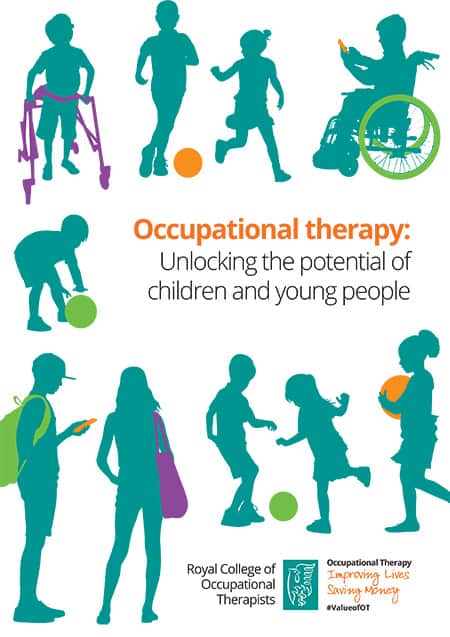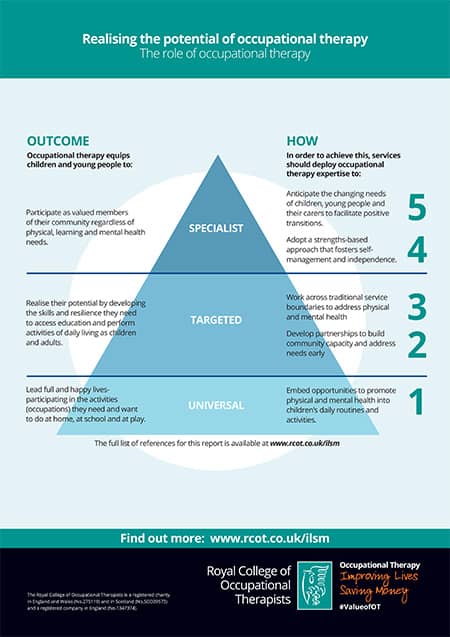New report highlights the integral role OTs play in helping disabled children and young people

Through numerous case studies, the report demonstrates how OTs can help children and young people participate in the activities that they want or need to do at home, school or work and during their free time.
The report also underlines how OTs are key to promoting collaboration between, health, social care, education and the voluntary sector.
Importantly, the document outlines how OTs can help disabled children and young people at universal, targeted and specialist levels. At a universal level, OTs can help children and young people lead fulfilling and happy lives so that they can take part in the activities they need and want to in their daily routines.
At a targeted level, occupational therapy can help children and young people realise their potential by developing the skills and resilience they need to access education and perform activities of daily living as children and adults.
At a specialist level, occupational therapy equips children and young people to participate as valued members of their community, regardless of physical, learning and mental health needs.

Commenting on the report, RCOT Chief Executive Julia Scott said: “As parents and as a society we all want children to lead full and happy lives, participating in the activities (occupations) they need and want to do, be that at home, at school and at play. Yet, the number of children and young people with special educational needs and disabilities in the UK is rising.
“Sadly many young people with additional learning and support needs are denied equality of opportunity and the support they need to realise their potential. This is absolutely unacceptable – the expectation that they should have access to the same opportunities and experiences as their peers is rightly embedded in UK policy.
“This report shows that to meet societal demands there needs to be more collaboration between, health, social care, education and the voluntary sector. As a workforce used to working across a range of service provider settings occupational therapists are key to driving this forward and promoting collaboration between different sectors. In addition, a better balance of provision at a universal, targeted and specialist level is needed.
“Occupational therapists can deliver this approach and this report outlines best practice for commissioning services.”

